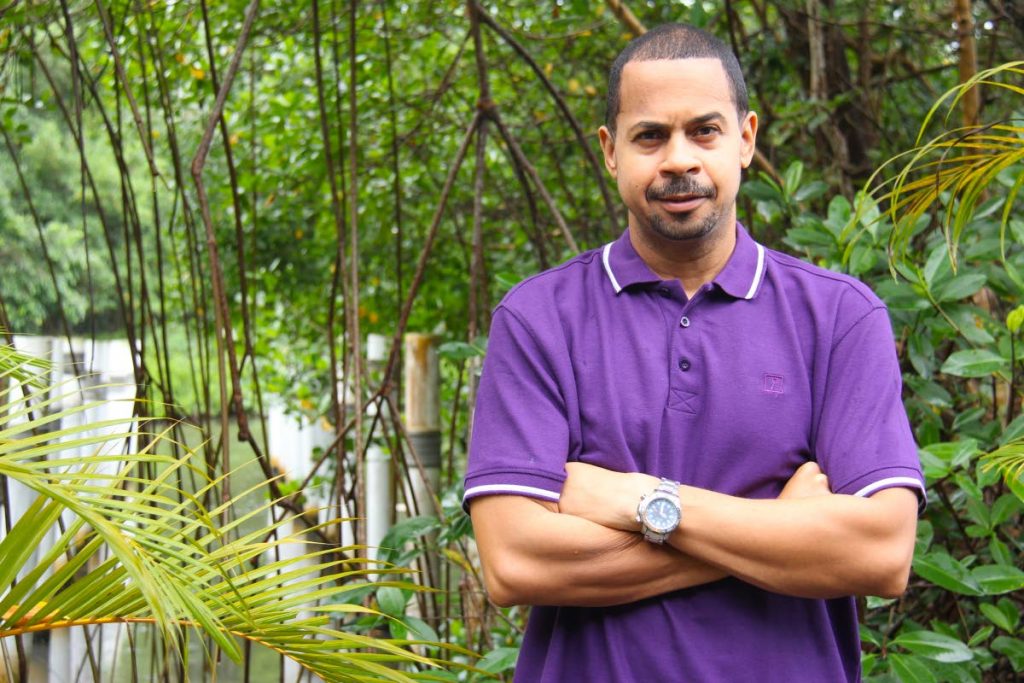Flooding and the future aquatic

RECENT episodes of severe flooding across the country rattled many of us. The shocking force of the deluge seemed almost apocalyptic. Churning, animated torrents effortlessly swept away vehicles, leaving a trail of destruction and mouths agape.
While severe flooding isn't a new feature of life here, that these events will likely become far more frequent and devastating is, perhaps, less appreciated.
Across the globe, the ominous march of climate change is being felt. Symptoms of a warming planet have many manifestations – fire, flood, famine; all that biblical stuff. Man-made global greenhouse-gas emissions are throwing the planet dangerously out of balance. The burning of fossil fuels at current levels to propel our lives, ambitions and ceaseless scrolling will make this world wildly inhospitable.
One of the major outflows of the Paris climate agreement of 2015 was a commitment by 200 nations to contain the rise in global temperatures to two degrees C – preferably 1.5 degrees.
There is, however, consensus among some scientists that this objective is already a lost cause – certainly in the short to medium term. Additionally, there are climate researchers convinced that even if those temperature targets were to be met, the cumulative effects of anthropogenic (man-made) global warming are “locked in.” There is no unringing of the climate change bell, as it were.
That's why there is such strong emphasis in the scientific community on mitigation and adaptation – adjusting life to a warmer world and all the attendant consequences.
It isn't the sunniest of horizons to confront, but it's a future we must face in the Caribbean right now.
Sea-level rise is one of the four horsemen of the apocalypse, except with climate change there are more than four.
With a conservative projection of sea-level rise pegged at more than three millimetres per year worldwide, low-lying small-island states are burdened with unique challenges.
Indeed, alarm bells over the menace currently lapping at our shores were sounded as far back as 1994 at a conference I attended in Barbados. The Global Conference on the Sustainable Development of Small-Island Developing States was a follow-up to the Agenda 21 programme adopted during the Rio Earth Summit in 1992.
At the SIDS conference, one of the objectives was "to adopt measures which will enable small-island developing states to cope with environmental change and mitigate impacts and reduce threats posed to marine and coastal resources."
In TT we're already experiencing the fallout of global warming. Coastal communities will be severely affected by rising sea levels. Apart from accelerated coastal erosion and inundation in severe storms, we will have to make our peace with increasingly violent weather producing more destructive deluges.
There is of course the ever-present threat of socio-economic ruin from extreme weather events. Without preparation for this emerging world, however, there will also be greater loss of life.
In a nation defined, in part, by a complicated relationship with planning and regulation, the impacts of climate change will be felt more acutely. As for maintenance – that is only understood as something deadbeat dads must be dragged to court to pay.
Here land developers scrape hillsides at high elevations with impunity. In many cases there is little focus on engineering work to mitigate the removal of vegetation and drainage to account for the increased flow of water in heavy rainfall. Such developments are possible because of pervasive institutional weaknesses.
Moreover, development continues to outpace existing canals and waterways. More flat surfaces are created, leading to greater runoff into drainage that hasn't evolved to cope with higher volumes.
Quarrying, both illegal and legal, is practised seemingly without any deference to hydrodynamics in certain areas. Planning is a building constructed for government supporters. So ad-hoc arrangements seem to guide land use in TT. Residential areas are sandwiched between industrial mini-estates. Poorly-thought-out drainage networks are never updated to account for shifts in land use – for example, from agricultural to residential.
Maintenance of drainage networks is, in most instances, a random affair rather than governed by a regular schedule. Clearing of clogged waterways is usually piecemeal and often inadequate.
The inevitability of climate change and its impacts call for state agencies that are empowered to help the nation adapt. Our future depends on the rigorous application of planning regulations to mitigate against the worst of wild weather that's becoming the norm. Flooding, already a consequence of fleeting showers, will levy greater suffering and loss than previously experienced.
TT will be victimised, once by climate change and twice by the resistance of our institutions to change.

Comments
"Flooding and the future aquatic"